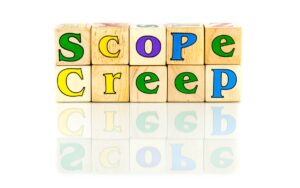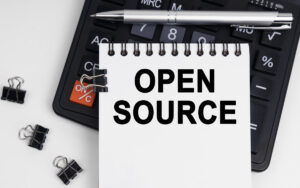We all manage projects at some point in our lives. In school, at home, or at our jobs, we have short-term tasks with long-term impacts that have to be planned for and addressed on a daily basis. You may not need a team of experts and a Kanban board to fix the bathroom sink, but you still need a plan. What kind of resources do you need? How long will the project take? Will you need any expert advice? When does it need to be completed? And finally, what are your contingency plans if your amateur plumbing worsens the problem?
In this article, we’ll not only give you a good answer to the question “What is project management?” but we’ll talk about some of the key objectives of a project manager (PM), the benefits of engaging one for your project, some popular project management methodologies, current tools available to today’s intrepid PM, and finally some of the project management certifications common to the most successful managers.
So, What is Project Management?
There are some examples of what a project entails above, but let’s narrow it down to a more finite definition regarding when you might need a project manager: A project is a temporary endeavor with specific goals and a set timeline. While some projects may take months or even years to reach their stated goals, there’s always a finish line. That endpoint is clearly defined early in the project outlining process, along with a definitive date by that all project tasks must be completed. There are also frequently specific success criteria that must be met for the efforts to be considered worthwhile.
What is a Project Manager?
The needs of a short-term project, as opposed to daily operations, require a different kind of management, so we have a different kind of manager: the project manager. This individual is more concerned about specific goals and timelines and oversees all aspects of the effort. Contributions may come from several departments and areas of expertise, so while a day-to-day supervisor may only be concerned about the direct reports in their department, a PM may have to account for resources from several areas of the company. When it comes to the project, the PM runs the show. Let’s talk next about some of the specific objectives project managers will typically have.
Also Read: Why Is Project Management a Good Career Choice?
Key Objectives of Project Management
Project Initiation – What needs to get done?
Before you start putting people to work, you must define the work needed. Key aspects of this step are defining scope, spelling out the project’s main objectives, determining how progress and success are measured, and finally, identifying the key stakeholders who need to sign off on the process. The project manager can be critical to getting the right people in the room to figure out how to approach a project best.
Planning Phase – How are we going to do it?
Before a PM starts handing out marching orders, they must identify the resources needed to complete the job. This includes individuals with specific areas of expertise, the materials they will need, and the time they must dedicate to each task. Several methodologies can come into play here, some of which we’ll talk about later in the article. This is where the indispensable project manager creates the all-important project plan.
Execution Phase – Who’s doing what?
Here’s where you cut your resources loose to do what they do best, with expert oversight from our project manager. The individual tasks identified earlier in the project are now farmed out to the best resources to tackle them. The PM plays coach by managing resources and providing them the support they need to help them stay on track. On-time and on budget, preferably.
Monitoring and Control – How are we doing?
Here’s where you measure the key metrics identified in the first couple of phases. The project manager’s job is to identify any pain points, reallocate resources as necessary, and sometimes adjust timelines to account for unforeseen obstacles. Of course, part of the diligence of the first phases is to predict as many of those obstacles as possible — but things can and will occur that couldn’t be planned for. At this point, the PM’s job is to help the team pivot to a workable strategy without scraping the project and starting from scratch completely.
Project Closure – What did we learn?
Whether the project was a smashing success or fell a little short of the mark, it’s essential to do a post-mortem. Identifying what worked, what didn’t, and how to make the subsequent project work even better are some final steps that shouldn’t be ignored, and it’s the project manager’s responsibility to provide a clear summary.
So now that you have a good idea what the answer to the question “What is project management?” and what a PM’s role during a project is, let’s look at some of the benefits of engaging a capable project management specialist to meet your goals.
Also Read: Mastering Project Manager Skills: A Comprehensive Guide
Key Benefits of Effective Project Management
Efficiency and Productivity
Having one person dedicated to managing timelines, resources and deliverables allows everyone else on the project to focus on what they do best. The right skill sets can be applied to the right tasks, and the project manager handles the rest. You don’t need your highly trained subject matter expert trying to schedule a stakeholder meeting or allocate the equipment needed to do their job. These important details can be handled by the project manager.
Teamwork
A great project manager not only ensures that all the parts of a project are moving in the right direction but also fosters collaborative communication between all those moving parts. Some projects could potentially involve competing departments within a company, and it’s the PM’s job to make sure everyone is on the same page and working toward a common goal for the benefit of the entire organization.
Risk Management
Roadblocks will occur, but a good project manager will be able to forecast many of these potential show-stoppers and have a plan to address them without moving the goal posts. They’ll have contingency plans in place to quickly pivot the team and keep the project on track, even when unforeseen interruptions happen.
On-Time and On-Budget
A big part of the planning phase is accounting for time and materials, making sure that a project intended to benefit a company ultimately doesn’t bankrupt it in the process. The project manager is the taskmaster here, being consistently vigilant about monitoring time and money spent during the project so that the end cost doesn’t eclipse the resulting benefits of the project.
Increased Satisfaction
Both stakeholders and, ultimately, consumers benefit from effective project management. Company stakeholders are kept in the loop on progress by the PM, and concisely measuring the project’s impact can quickly translate to company promotional materials to benefit the eventual customer.
As you can see, there’s a lot to manage on a project — and a lot to gain by acquiring expert management in the form of a competent project manager. So what kind of methodologies and technical tools should a modern PM have at their disposal to address these objectives and achieve the aforementioned benefits? We’ll discuss a few of the more popular ones next.
Also Read: All About Project Management Qualifications
What is Project Management: Approaches and Tools
- Agile – The popular Agile approach fits best when flexibility and adaptability are critical to a project. Its collaborative and data-driven approach allows the project manager to adjust to changing conditions and roadblocks quickly. Specific methodologies based on Agile include Scrum, Kanban, and Lean.
- Waterfall – This more traditional approach works best for stable, linear projects where each step in the project has to be completed in order, and the expectation of variation in the tasks is low.
- Six Sigma – This method follows a structured approach called DMAIC (Define, Measure, Analyze, Improve, Control) used to identify problems, analyze root causes, implement improvements, and sustain results.
- Critical Path Method – The CPM technique focuses on the tasks that most significantly impact the duration of a project, useful when the deadline is fixed and can’t be adjusted.
- Jira – This project management application includes features specific to the Agile approach and touts customizable workflows and extensive reporting functions.
- Microsoft Project – The original PM software has been used for decades, integrates seamlessly with other Microsoft applications, and includes various planning, scheduling, and resource management features.
- Monday.com – Another software application that lends itself to flexibility, it also features a visual interface for tracking tasks and fostering real-time collaboration.
- Asana – Favored by companies tackling extremely complex projects, it also includes various flexible features that can be applied to resource management, issue tracking, and reporting.
Now that we’ve taken a peek inside a project manager’s toolbox and seen some of the tools at their disposal let’s talk about some of the PM certifications many companies expect a prospective project manager to have.
Project Management Certification and Training
Nothing prepares you better to answer the question “What is project management?” than becoming a certified one.
Project Management Professional (PMP®) – The PMP certification is one of the most widely recognized and respected certifications in project management. It validates a professional’s knowledge and experience in project management principles, processes, and techniques.
PMI Agile Certified Practitioner (PMI-ACP®) – The ACP certification validates an individual’s knowledge and experience in Agile methodologies, including Scrum, Kanban, Lean, and others. It demonstrates proficiency in Agile principles, practices, and tools.
Lean Six Sigma – Lean Six Sigma certifications focus on process improvement and reducing defects or errors in various industries. They are offered at different levels, including Yellow, Green, Black, and Master Black Belt. These certifications demonstrate proficiency in Lean Six Sigma methodologies and tools for optimizing processes and driving quality improvements.
PRINCE2® – PRINCE2 certification is based on the PRINCE2 methodology and is widely recognized in the UK and internationally. It offers a structured approach to project management and focuses on defined roles, processes, and principles. The PRINCE2 certification is available at two levels: Foundation, which covers the basics of PRINCE2, and Practitioner, which requires a deeper understanding of the methodology and its application.
These are only a few more popular certifications available to today’s project manager. For access to some of these highly sought-after credentials and broad-reaching skill sets that any aspiring PM could benefit from, check out this certificate in project management program from Simplilearn in collaboration with the University of Massachusetts. Classes are interactive and instructor-led by reputable and talented project management specialists.
These experts bring their vast knowledge, industry-specific case studies, and integrated lab work to help make the theory practical and applicable. The six short months of class culminate in a business-oriented capstone project allowing students to hone, validate, and display their brand-new skill sets. This comprehensive online PM program will help you increase your potential value as a certified project manager.
You might also like to read:
How to Create a Project Plan: A Beginner’s Guide
How to Ace the PMP Exam? A Comprehensive Guide
Is PMP Certification Worth It?







